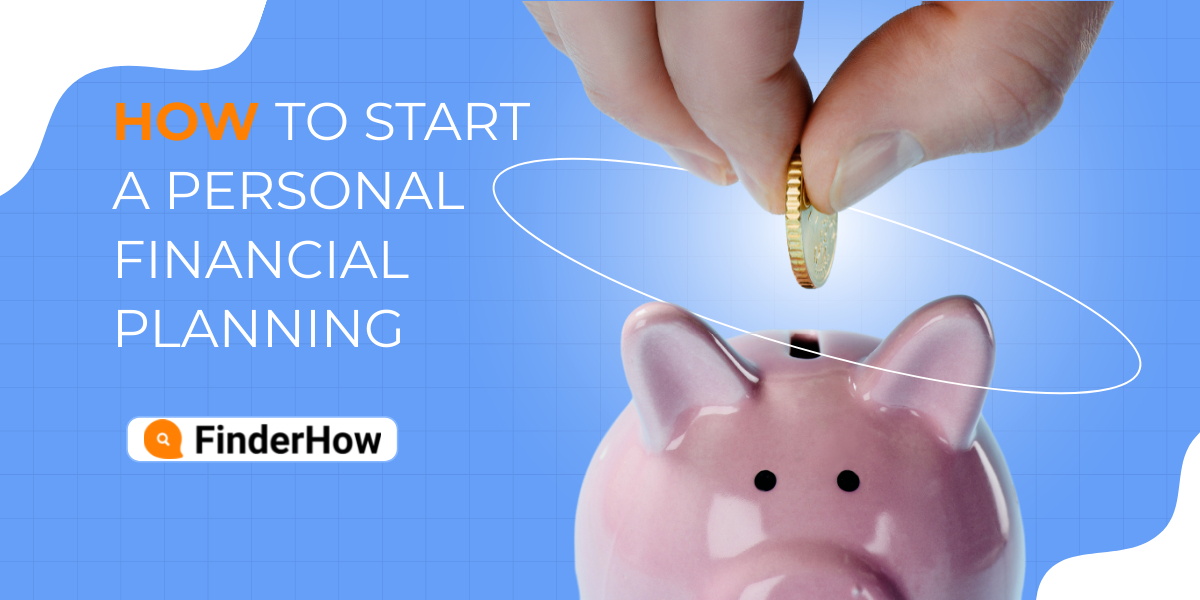How to start a Personal Financial Planning: A Comprehensive Guide
How to start a personal financial planning is the process of managing your money to achieve your financial goals. It involves creating a budget, saving for emergencies, investing for retirement, and protecting your assets. In this article, we will discuss the key components of personal financial planning and why it is important.
Why is Personal Financial Planning Important?
Personal financial planning is important because it helps you achieve your financial goals. Whether you want to save for a down payment on a house, pay off debt, or retire comfortably, having a plan in place can help you get there. Without a plan, it is easy to overspend and fall into debt or miss out on opportunities to grow your wealth.
There are several reasons why you should start a personal financial planning.
- It helps you manage your money better. By creating a budget and tracking your expenses, you can identify areas where you are overspending and make adjustments to reduce your expenses.
- It helps you save for emergencies and retirement. By setting aside money in an emergency fund and retirement account, you can protect yourself from unexpected expenses and ensure that you have enough money to live comfortably in retirement.
- It helps you invest wisely. By understanding your risk tolerance and investment options, you can create an investment portfolio that meets your financial goals.
- It helps you protect yourself from financial risks. By purchasing insurance policies such as health insurance, life insurance, and disability insurance, you can protect yourself from financial losses due to illness or injury.
What are the Components of Personal Financial Planning?
- Setting Financial Goals: The first step in personal financial planning is to set financial goals. This involves identifying what you want to achieve financially and setting specific, measurable targets.
- Creating a Budget: Once you have set your financial goals, the next step is to create a budget. A budget is a plan for how you will spend your money each month. It should include all of your income and expenses, including fixed expenses like rent or mortgage payments and variable expenses like groceries and entertainment.
- Saving for Emergencies: Unexpected events like job loss or medical emergencies can quickly derail your finances. That’s why it’s important to have an emergency fund in place. Aim to save at least three to six months’ worth of living expenses in case of an emergency.
- Investing for Retirement: Retirement may seem far off, but it’s important to start saving early so that you can retire comfortably. Consider contributing to a 401(k) or IRA and investing in low-cost index funds.
- Protecting Your Assets: Finally, it’s important to protect your assets with insurance policies like health insurance, auto insurance, and homeowner’s insurance.
When Should You Start Personal Financial Planning?
It’s never too early or too late to start personal financial planning. Whether you’re just starting out in your career or nearing retirement, having a plan in place can help you achieve your financial goals. The best time to start personal financial planning is now. No matter what your age or financial situation, it is never too late to start managing your money better. The earlier you start, the more time you have to achieve your financial goals. If you are in debt, starting a personal financial planning can help you get out of debt and improve your credit score. If you are young and just starting out in your career, starting a personal financial planning can help you set financial goals and create a plan to achieve them.
In Conclusion
How to start a Personal financial planning is the process of managing your money to achieve your financial goals. It involves setting financial goals, creating a budget, saving for emergencies, investing for retirement, and protecting your assets. By following these key components of personal financial planning, you can achieve financial security and peace of mind.


